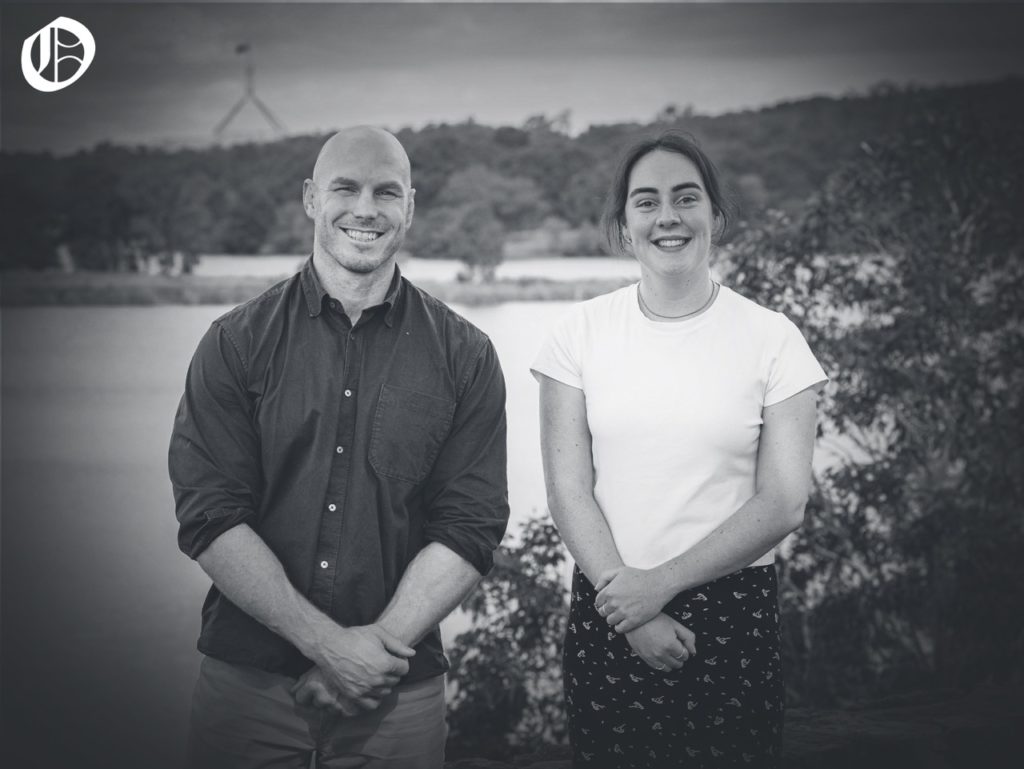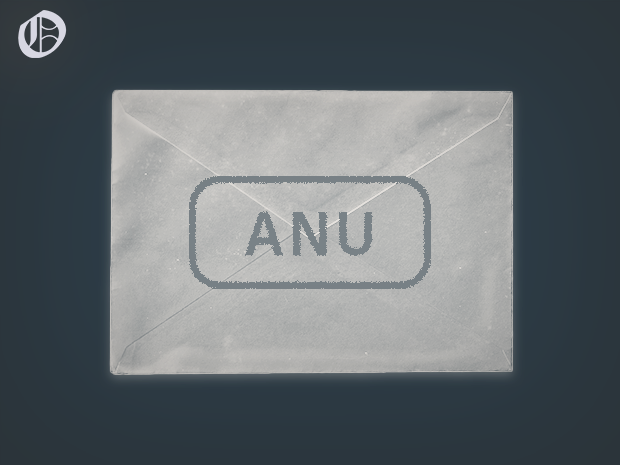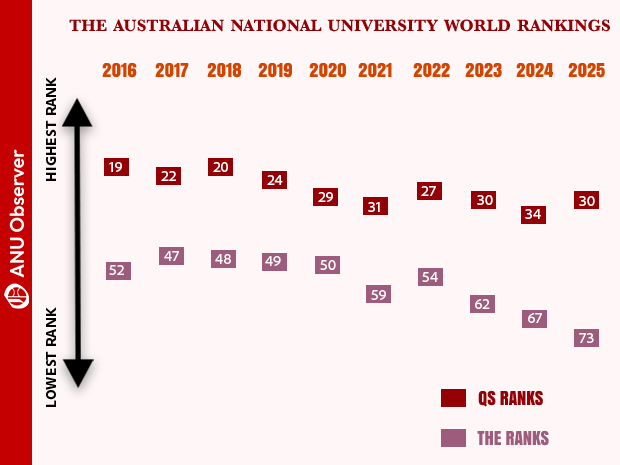To Be or Not to Be…Paid: Student Internship Experiences at the ANU

By Saffron Geyle
Are you graduating soon? Or are you super on top of things, getting the headstart we all wish we did early on in our university career? Either way, you are probably familiar with the many internships available at the ANU. Often part of your coursework, the university offers a range of paid and unpaid internships to students looking to advance their academic and professional careers. These opportunities are offered across all colleges at the ANU, and aim to build on and provide practical experience for students in their respective fields of study.
One of the university’s most popular internships offered is the Australian National Internships Program, or ANIP, as most students know it by. The program involves students undertaking a research-oriented internship between 10 and 40 placement days, depending on the number of units taken, with various government and non-government employers.
Students can undertake ANIP internships with the ACT Legislative Assembly, Government agencies, diplomatic missions, NGOs and think-tanks. Placements are for one, two, or four days per week and the ANIP course includes workshops on policy research and professional skills. Fifth year student Lily* spoke to Observer on her experience with the internship last year.
“I made some valuable connections at the organisation, learning lots from my supervisors and having the opportunity to be in a non-academic environment where I could apply my academic experience.”
When speaking on the financial viability of her internship, Lily stated that the unpaid nature of her internship had a “slightly negative impact on [her] experience” overall. She said that while she appreciates the opportunities that the unpaid internship has been able to provide her, compared to some paid internships, she has reservations on the ethics of the process.
“Something about paying for an internship as a university course, where I am working for an organisation, doesn’t sit quite right with me.”
Lily also experienced difficulties in the allocation of her internship, describing the period of time between submitting her application and receiving acceptance as “stressful”. She advises “anyone applying to be prepared for a bit of uncertainty”. Additionally, her transportation needs were not completely met when allocating her an organisation for this internship.
“Despite flagging that I do not drive in Canberra, and am a full time university student, I received a role in Queanbeyan, NSW. This meant a higher cost of public transport on a weekly basis.”
In terms of the opportunities that emerged for Lily following this internship, she said the ANIP program has made her “more open-minded to different kinds of professional pathways and opportunities like working for an NGO in the future”.
“Exposure to a different workplace and area is always valuable.”
Whilst these opportunities were beneficial for Lily, she is unsure if she would recommend other students to engage with the program.
“I don’t think I would. It was very stressful when it didn’t have to be, and I think there are other opportunities students could get with better support and direction.”
Alongside ANIP, the university offers internships across all faculties including The College for Business and Economics (CBE). The CBE are currently inviting students to apply for their internships program for Semester 2 2025. These internships will provide students with the opportunity to complete work experience through workplace projects of either 6 units (120 hours) or 12 units (240 hours) over the course of 10 weeks.
A spokesperson for the ANU stated that the number of internships offered to students is limited, varying between each college. The ‘Tech Launcher’ computer science internship, for example, is a particularly popular option that has seen “around 400 students registered”.
When asked about support services available for students undertaking internships, the spokesperson stated that students can find useful information and guidance on preparing successful applications on the ANU Career Central website.
“Each course has a course convener, who provides academic guidance and is responsible for marking coursework related to the experience. Additionally, some courses incorporate workshops preparing students for successfully applying for the internship, as well as working in a professional environment.”
When asked about the support she felt throughout her internship, Lily said that she “really struggled to communicate between the organisation at the ANU across the whole internship”.
“This was really frustrating and without a solid sense of a cohort, with my peers not taking the same course as me it was quite isolating.”
While the ANU has numerous internship programs to offer students, fourth-year engineering student Josh* spoke to Observer on a summer internship at Nova Systems, a program he found on the Seek website.
“My internship was a 10 week summer internship at a company called Nova Systems. They are an engineering consulting firm that works below the line in the private sector, and above the line in defence.”
Josh also faced difficulties with the unpaid nature of his internship, stating it had a “significant negative impact on [his] experience”.
“Considering the fact that it was full time, 9-5, five days a week, I didn’t really have the battery to be able to work a job on the weekend, so I was living off my savings all summer.”
However, the nature of these internships is extremely competitive. Josh highlighted that in Australia, all engineering students need to complete practical experience in order to complete their degrees.
“I feel like this is the only way that engineering companies can really get away with having unpaid internships, knowing that the students are desperate for internships anyway.”
When speaking on the highlights of his internship, Josh emphasised his appreciation for the community and friendly environment at the company.
“In my particular case, all other people in my office were extremely friendly, inviting us out to social events and weekly lunches, which made it a lot easier to settle in and feel comfortable in a new environment.”
“I remember one of the last days in the old office before they moved out, the office was practically empty, so the interns and a couple of the graduates had an office wide nerf battle on Friday afternoon. It was really fun and cool to see how even in professional workplaces, there is still an opportunity for fun and to bond with colleagues outside of just work.”
At the end of his experience, Josh stated that the key opportunity he was afforded was a practically guaranteed graduate position at the company in the future. While he will most likely not be taking this role, he still recommends that students get involved in this internship program.
He stated that if students are able to support themselves financially over the course of the program, “the internship itself is very good, a lot of opportunities to meet new interesting people, gain new perspectives on your future career, and work in something that you may have no prior experience in”.
“I would definitely recommend other students go for this internship, but only if they feel financially secure enough to survive on their savings for the summer. While some people may be capable of working a second job on top of this full time work to support themselves, I would imagine that the vast majority of people will struggle with that.”
Alongside internship programs at the ANU, students are also able to find volunteering opportunities through the ANU+ website. This is a structured non-academic program that facilitates personal development and community contribution for students at the university, designed to give participants valuable skills that enhance their employability. Other avenues that students can look into for graduate positions include websites such as GradAustralia and ANU Career Central.
*Names have been changed to protect the anonymity of students.
Graphics by James Neal
Know something we don’t know? Email [email protected] or use our anonymous tip submission.
If you have an issue with this article, or a correction to make, you can contact us at [email protected], submit a formal dispute, or angry react to the Facebook post.
Want to get involved? You can write articles, photograph, livestream or do web support. We’re also looking for someone to yell “extra!” outside Davey Lodge at 1AM. Apply today!








